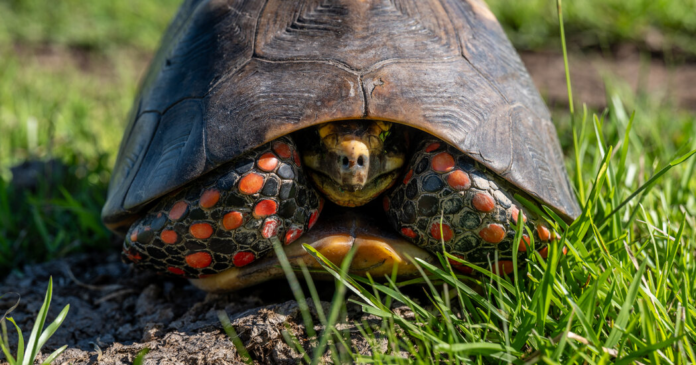Should you meet a turtle basking on a log in the sun, you might reasonably conclude that the turtle is in a good mood.
Granted, there has been little scientific evidence that reptiles experience such emotional richness — until now, at least. Researchers in England identified what they describe as “mood states” — emotional experiences that are more than momentary — in red-footed tortoises by administering cleverly designed tests that use responses to ambiguity as windows into the psyche. The results of the study, published in the journal Animal Cognition in June, could apply to many more reptiles and have profound implications for how people treat them.
“There was an acceptance that reptiles could do these short-term emotions,” said Oliver Burman, who studies animal behavior at the University of Lincoln in England and is an author of the paper. “They could respond to positive things and unpleasant things. But the long-term mood states are really important.” As for why it took so long to show this in reptiles, Dr. Burman said, “maybe we just haven’t asked them correctly.”
Reptiles have a longstanding reputation as being unintelligent. Writing in 1892, Charles Henry Turner, the pioneering comparative psychologist, described reptiles as “intellectual dwarfs.” Eight decades later, in 1973, prominent scientists were referring to them as “reflex machines” and (in a paper titled “The Evolutionary Advantages of Being Stupid”) as possessing “a very small brain which does not function vigorously.”
Dr. Burman is among the scientists responsible for what some have called a “reptilian renaissance.” An array of findings — tortoises learning from one another, snakes with social networks, crocodiles displaying complex communication — indicate that reptiles are no less brainy than mammals and birds.
But do they have moods?
Dr. Burman and his colleagues approached that question using what is known as a cognitive bias test. These operate on a principle common to many animal minds, human and nonhuman alike: Individuals in a good mood are more optimistic about uncertain outcomes, whereas those in a bad mood tend to be pessimistic.
Thank you for your patience while we verify access. If you are in Reader mode please exit and log into your Times account, or subscribe for all of The Times.
Thank you for your patience while we verify access.
Already a subscriber? Log in.
Want all of The Times? Subscribe.




